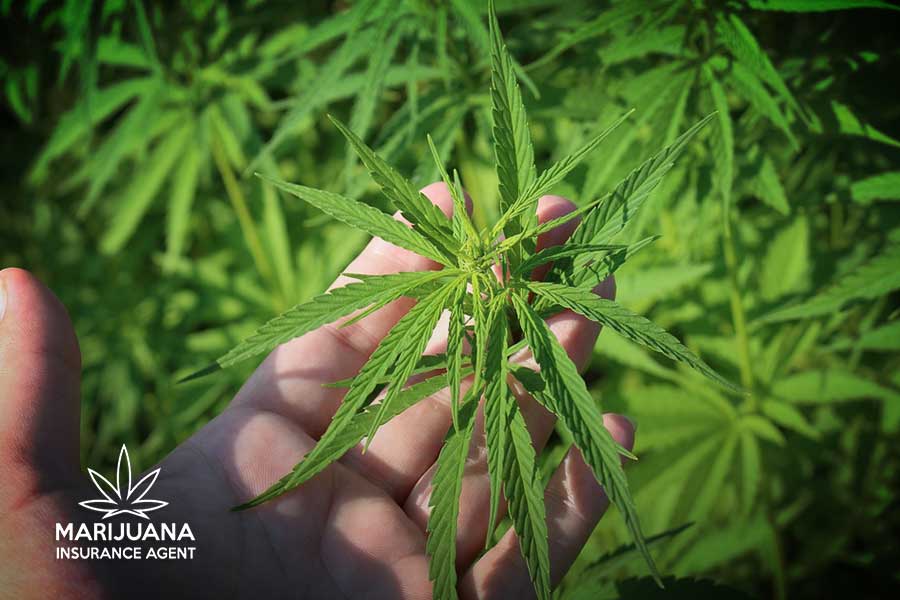The new U.S. Farm Bill brought unexpected good news to the hemp industry at the end of 2018 by opening the door for future regulation that would allow hemp businesses to receive services like insurance as normal. With the signing of the bill, the federal government legally separated hemp from the still-prohibited cannabis plant.
Hemp is a species of cannabis that can be used to create fabric, rope, ethanol, and even insulation. But the property that everyone is talking about is hemp’s concentration of cannabidiol, also known as CBD, and its low concentration of tetrahydrocannabinol, also known as THC. CBD is known to have therapeutic value, although currently the only USDA-approved version is a specific formula of CBD for treating seizures in certain rare kinds of epilepsy. THC is the compound associated with the euphoric effect.
States to develop regulatory systems
The president signed the Farm Bill on December 2018, but that doesn’t mean that you can go ahead and plant hemp seeds this spring. Individual states must develop their own hemp regulatory system before any “legal” hemp farms can be established. If any states chose not to develop their own system, not all hope is lost, because the U.S. Department of Agriculture (USDA) will also develop a regulatory framework to cover all areas that do not have their own laws regarding hemp production (unless your state has outright banned it).
Developing these regulations takes time, however, so now state representatives are beginning to seriously consider what a hemp industry could look like in their borders. Lifting the federal ban not only means the businesses in this sector would have access to grant programs, crop insurance, and banking services, but it also means that interstate commerce for hemp will be possible.
As the regulations aren’t developed yet, it’s difficult to predict what the industry will look like, but it’s clear that it isn’t perfect yet. Advocates from the Drug Policy Alliance raised concerns that the Farm Bill prohibits individuals with drug convictions from participating in the new industry for 10 years. This blocks off thousands of new jobs and opportunities for many people, making it harder for them to contribute to the economy. This kind of policy also has a disproportionate effect on Indigenous communities and people of color. The bill also doesn’t allow for all varieties of hemp to be produced, only hemp that has a concentration of THC that is below 0.3%. CBD cannot be used as a dietary supplement for now, though those rules may change as the process unfolds.
As this new industry begins to gain ground, crop insurance will become more important. The regulatory and setup costs of establishing the farm may initially be high, and you don’t want to lose millions in potential profits because of crop failure. Due to the differences in federal regulation, hemp crop insurance will have different needs and risks involved than cannabis crop insurance. Both are possible to find policies for, but you need to be sure that you’re getting the right policy for your business.

Leave A Comment